#mandarin studyblr
Text
50+ fundamental crime, suspense, & mystery Cdrama vocab words

I'm currently watching 《模仿犯》, so I was inspired to put together this list of essential vocab for 犯罪剧/悬疑剧/推理剧. I tend to gravitate towards dramas that fall into these genres.
I've sorted the words into categories. These were determined by vibes only. Definitions are adapted from MDBG, my loyal companion for nearly 10 years.
The Case
案子 ànzi - case / law case / legal case / judicial case
案件 ànjiàn - case / instance
办案 bàn'àn - to handle a case
破案 pò'àn - to solve a case
报案 bào'àn - to report a case to the authorities
命案 mìng'àn - homicide case / murder case
作案 zuò'àn - to commit a crime
现场 xiànchǎng - the scene (of a crime, accident etc) / (on) the spot / (at) the site
证据 zhèngjù - evidence / proof / testimony
真相 zhēnxiàng - the truth about sth / the actual facts
The Investigation
厘清 líqīng - to clarify (the facts) / clarification
线索 xiànsuǒ - trail / clues / thread (of a story)
细节 xìjié - details / particulars
痕迹 hénjì - vestige / mark / trace
追踪 zhuīzōng - to follow a trail / to trace / to pursue
追问 zhuīwèn - to question closely / to investigate in detail / to examine minutely / to get to the heart of the matter
排除 páichú - to eliminate / to remove / to exclude / to rule out
嫌疑 xiányí - suspicion / to have suspicions
怀疑 huáiyí - to doubt (sth) / to be skeptical of / to have one's doubts / to harbor suspicions / to suspect that
跟踪 gēnzōng - to follow sb's tracks / to tail / to shadow / tracking
不对劲 búduìjìn - fishy / wrong / not right
隐瞒 yǐnmán - to conceal / to hide (a taboo subject) / to cover up the truth
The Victim
被害者 bèihàizhě - victim (of a wounding or murder)
受害者 shòuhàizhě - casualty / victim / those injured and wounded
幸存者 xìngcúnzhě - survivor
失踪 shīzōng - to be missing / to disappear / unaccounted for
消失 xiāoshī - to disappear / to fade away
绑架 bǎngjià - to kidnap / to abduct / to hijack / a kidnapping abduction / staking
遗体 yítǐ - remains (of a dead person)
尸体 shītǐ - dead body / corpse / carcass
拯救 zhěngjiù - to save / to rescue
寻人启事 xúnrénqǐshì - missing persons notice
The Perpetrator
嫌疑犯 xiányífàn - a suspect
嫌疑人 xiányírén - a suspect
歹徒 dǎitú - evildoer / malefactor / gangster / hoodlum
凶手 xiōngshǒu - murderer / assassin
一伙儿的 yìhuǒrde - in on it together
开枪 kāiqiāng - to open fire / to shoot a gun
鬼鬼祟祟 guǐguǐsuìsuì - sneaky / secretive / furtive
可疑 kěyí - suspicious / dubious
认罪 rènzuì - to admit guilt / to plead guilty
自首 zìshǒu - to give oneself up / to surrender (to the authorities)
下落 xiàluò - whereabouts / to drop / to fall
动机 dòngjī - motive / motivation
犯罪 fànzuì - to commit a crime / crime / offense
The Police
报警 bàojǐng - to sound an alarm / to report sth to the police
警察 jǐngchá - police / police officer
警方 jǐngfāng - police
警官 jǐngguān - constable / police officer
刑警 xíngjǐng - criminal police (abbr. for 刑事警察)
被捕 bèibǔ - to be arrested / under arrest
包围 bāowéi - to surround / to encircle / to hem in
监控 jiānkòng - to monitor
检查 jiǎnchá - inspection / to examine / to inspect
调查 diàochá - investigation / inquiry / to investigate
排查 páichá - to inspect / to investigate one by one
质问 zhìwèn - to question / to ask questions / to inquire / to bring to account / to interrogate
前科 qiánkē - criminal record / previous convictions
Bonus: Here's a list of dramas I have seen/am watching in these categories:
《想见你》 Someday or One Day
《开端》 Reset
《消失的孩子》 The Disappearing Child
《她和她的她》 Shards of Her
《镇魂》 Guardian
《模仿犯》 Copycat Killer
《不良执念清除师》 Oh No! Here Comes Trouble
Now go forth and enjoy some more dramas! I'm a slow watcher, so I add new shows to my watch list faster than I can finish them.
#vocab list#cdrama#cdramas#chinese drama#taiwanese drama#chinese#mandarin#mandarin chinese#chinese language#studyblr#langblr#language study#language learning#chinese studyblr#chinese langblr#mandarin studyblr#mandarin langblr#study chinese#study mandarin#learn chinese#learn mandarin#studying chinese#learning chinese#studying mandarin#learning mandarin#languages#language blog#languageblr#chinese vocab#mandarin vocab
628 notes
·
View notes
Text

GUYS THIS HAS BEEN THE BEST WEEK OF MY LIFE I SWEAR. I THOUGHT THEY WOULDNT LET ME KNOW FOR A WHIIILE OMGOMG IM GOING TO TAIWAN
#studyblr#study blog#langblr#langblog#language learning#languageblr#chinese langblr#mandarin langblr#study abroad#taiwan#chinese language#mandarin chinese#mandarin studyblr#studyblr community#chinese studyblr#learning chinese#learn chinese#mandarin study#learn mandarin#studyabroad#exchange student#student life#uniblr#university#college
96 notes
·
View notes
Text
音系学,音位学 - Phonology
音位学分析 yīnwèixué fēnxī - phonological analysis
音系表征 yīnxì biǎozhēng - phonological representation
心��表征 xīnlǐ biǎozhēng - mental representation
抽象表征 chōuxiàng biǎozhēng - abstract representation
单位 dānwèi - units
音段 yīnduàn - segment
音节 yīnjié - syllable
音节首 yīnjiéshǒu - onset
音节核 yīnjiéhé - nucleus
音节尾 yīnjiéwěi - coda
音拍 yīnpāi, 莫拉 mòlā - mora
音步 yīnbù - foot
莫拉理论 mòlā lǐlùn - moraic theory
音节长度 - syllable length
音位 yīnwèi - phoneme
最小对立体 zuìxiǎo duìlì tǐ - minimal pair
区别意义 qūbié yìyì - distinguish meaning
对立的 duìlì de - contrastive
边缘对立 biānyuán duìlì - marginal contrast
音位中和 yīnwèi zhōnghé - phonemic neutralization
音位变体 yīnwèi biàntǐ - allophone
环境 huánjìng - environment
条件变体 tiáojiàn biàntǐ - conditioned variant
自由变体 zìyóu biàntǐ - free variation (无条件变体)
预测 yùcè - predict
互补分布 hùbǔ fēnbù - complementary distribution
自然类 zìrán lèi - natural class
在一定条件下产生 "produced under certain conditions" (产生 chǎnshēng "give rise to, produce")
在其他实词中都呈现互补分布。"They all present complementary distributions in other content words."
如果有一群语音共享一个或多个发音或听觉特征,而且同一个语言的其他音没有,这群语音就组成一个自然类。"If a group of sounds shares one or more articulatory or auditory features, which are not shared by the other sounds of that language, then that group of sounds is a natural class."
音位配列 yīnwèi pèiliè, 语音组合法 yǔyīn zǔhé fǎ - phonotactics
规则 guīzé - rule
替换 tìhuàn - substitute, replace
语音同化 yǔyīn tónghuà - assimilation
语音异化 yŭyīn yìhuà - dissimilation
语音省略 yǔyīn shěnglüè - deletion, elision
插音 chāyīn - epenthesis, insertion
语音变换 yǔyīn biànhuàn - metathesis
补偿延长 bǔcháng yáncháng - compensatory lengthening
连音 liányīn- sandhi, liaison
变调 biàndiào - tone sandhi
底层表达 dǐcéng biǎodá - underlying representation (底层形式 dǐcéng xíngshì, 底层表现 dǐcéng biǎoxiàn)
表层表现 biǎocéng biǎoxiàn - surface form
自主音段音系学 zìzhǔ yīnduàn yīnxìxué - autosegmental phonology
特征 tèzhēng - feature
音层 yīncéng - tier, level (as used in phonological context)
自主音段音系学理论把不同的区别性特征放在不同的音层上。
超音段 chāoyīnduàn - suprasegmentals
韵律 yùnlǜ - prosody
语调 yǔdiào - intonation
音高 yīngāo - pitch
响度 xiǎngdù - loudness
重音 zhòngyīn - stress, accent
节奏 jiézòu - rhythm, timing
重音节奏 zhòngyīn jiézòu - stress-timed
音节节奏 yīnjié jiézòu - syllable-timed
音拍节奏 yīnpāi jiézòu - mora-timed
表征的模型 biǎozhēng de móxíng - representation models
样本理论 yàngběn lǐlùn - exemplar theory
自下而上的过程 zìxià'érshàng de guòchéng - bottom-up process
自上而下的过程 zìshàngérxià de guòchéng - top-down process
优选论 yōuxuǎn lùn - Optimality Theory
制约排列 zhìyuē páiliè - constraint ranking
忠实性制约 zhōngshí xìng zhìyuē - faithfulness constraint
标志性制约 biāozhì xìng zhìyuē - markedness constraint
候选项目 hòuxuǎn xiàngmù - candidate
其他啊啊啊 (other)
范畴性的 fànchóu xìng de - categorical
阶层性的 jiēcéng xìng de - gradient
感知 gǎnzhī - perceive
发音 fāyīn - produce (sound), pronounce, enunciate
#中文#汉语#mandarin#mandarin studyblr#langblr#chinese langblr#词汇#chinese vocab#mandarin vocab#vocab#I’ve been sitting on this post for like a year now cuz I couldn’t find translations of a few more terms I wanted#alas#idk I just wanted to post it finally and probably make another one for vocab abt syntax lol#since apparently that’s what my thesis is#and I’ve been talking a lot w a classmate who’s doing hers on Chinese syntax#fun stuff#linguistics#语言学
31 notes
·
View notes
Text
Word of Honor Vocab - Episode 2
after much too long, here we go
若 (ruò) - as if; like
美若天仙
诚意 (chéng'yì) - good faith/sincerity
表明诚意
变数 (biàn'shù) - variable
此事变数很大
步法 (bù'fǎ) - footwork
你的步法很厉害
偏偏 (piān'piān) - lightly/airily; unrestrained
蝴蝶在花丛中偏偏飞舞
翩翩少年
仙 (xiān) - celestial being; immortal
凡人和神仙
眼疾 (yǎn'ji2) - eye trouble/ eye disease
我爷爷有眼疾所以它不看清楚
飘飘 (piāo'piāo) - to float about/to flutter
红旗飘飘
流风 (liú'fēng) - customs handed down from past generations
流风余韵
仿佛 (fáng'fú) - seemingly/as if
这事她仿佛已经知道了
轻 (qīng) - light (weight)
工作很轻
所谓 (suǒ'wèi) - what is called/what is known as; so-called
所谓团结,并非一团和气
他所谓的朋友都背弃了他
壶 (hú) - kettle/pot
壶里是开水
独酌 (dú'zhuó) - to drink alone
如果你很难过,你应该不独酌
尾随 (wěi'suí) - to tag along after
尾随其后
究竟 (jīu'jìng) - outcome/what actually happened
大家都想知道个究竟
妨 (fáng) - hinder/hamper; harm
你试一试也无妨
会妨大事
明示 (míng'shì) - to explicitly instruct
我明示你得做你的功课但是你还没做完了!
傻 (shǎ) - stupid/muddleheaded
吓傻了
剑 (jiàn) - sword
剑柄
拔剑
#as always corrections are welcome#most of the sentences are from pleco but where pleco had none i had to come up with some#i have two more vocab lists planned for word of honor and hopefully i get to them soon#m vocab#mandarin#chinese#mandarin studyblr#mandarin vocab#learn mandarin#learn chinese#chinese langblr#chinese studyblr#mandarin langblr#word of honor#shan he ling#山河令#langblr#chinese language#普通话
132 notes
·
View notes
Text
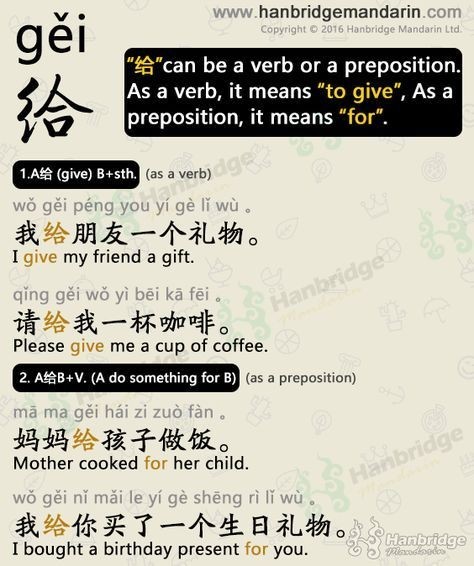
Guys, I swear the source website of this picture had helped me out so much both when I started learning chinese and now!
Link:
I don't usually recommend pinterest to find useful websites but I did find this website there somehow lol. Istg half the links of pinterest are unavailable or something.
#langblr#chinese langblr#mandarin langblr#mandarinblr#chineselangblr#chinese vocab#mandarin vocab#chinese vocabulary#chinese language#chinese studyblr#mandarin vocabulary#mandarin chinese#mandarin studyblr#mandarin#learn chinese#study chinese#chinese study#learn mandarin#study mandarin#learning mandarin#studying mandarin#langblog#language learning#languageblr#learning languages#zhongwen
202 notes
·
View notes
Text



10/09.
We're taking today easy uwu~ My plan is to do some self-study of Korean for most of the day ( I'm working through TTMIK's my first 500 Korean words ) & revising my mandarin vocab so that it sticks. Besides that I'm hanging out in a friends livestream & hoping to read a whole HEAP today.
CURRENTLY READING: Babel - R.F Kuang & An exciting and vivid inner life - Paul Dalla Rosa
CURRENTLY LISTENING: Cyberpunk - ATEEZ
#notion#studying#bookblr#bookstagram#studyblr#studyblr community#study space#cozy vibes#study blog#studyspo#study aesthetic#accounting student#book blog#language#langblr#korean studies#korean studyblr#chinese studies#mandarin studyblr
257 notes
·
View notes
Text
Here’s a fun phrase I learned:
我救了你的狗命
wǒ jiùle nǐ de gǒu mìng
Literally: “I saved your dog life.”
This is something you can say to a friend if you help them out and you want to make fun of them a little. “Dog life” is playfully derogatory in this context. “I saved your useless life” Implies that the person you saved should be very grateful to you.
I first saw it used in a cdrama called Find Yourself when one character gives another character an item that helps them get out of a lie. I used it when I found my roommate’s keys the day we moved out, saving her from a fine, lol.

#chinese#learning mandarin#chinese language#chinese learning#chinese langblr#mandarin langblr#mandarin studyblr#learning chinese
204 notes
·
View notes
Text
if i want to learn to read in chinese (cantonese) what are the best free resources to do so? i still have the muscle memory for writing from when i was in chinese school (like proper stroke order and such) but i would like to be able to read! also is there a difference between cantonese and mandarin for reading? idrc about speaking since i am coming from a toisanese bg anyway so i know some basic cantonese!
38 notes
·
View notes
Text


↳ 09.09.22. / Friday
Oh I am definitely gonna have to re-learn how to take nice desk/study pictures. Anyways, today I’m reviewing my early TESOL program notes to refresh myself on some grammar and sneaking in a quick DuoLingo session. I don’t use Duo as my primary study material for any language, but I find it particularly helpful for Mandarin because it forces me to read/review characters every day. I simply don’t have time every day to hit my textbooks the way I want to, but I can always do a Duo lesson or two. Also, I am competitive and want to get to a year-long Duo streak lol.
169 notes
·
View notes
Text
Anyone know of a fairly active discord for people learning Mandarin Chinese or who do translation? Just wanna practice and bounce ideas off of people.
#mandarin#langblr#studyblr#chinese langblr#mandarin langblr#polyglot#chinese studyblr#mandarin studyblr#ramblings
26 notes
·
View notes
Text
75 essential single-character verbs (单字动词)

When I started consuming more native Chinese content, I quickly discovered an area in which my knowledge was lacking: single-character verbs. In my experience, it’s very easy to focus on learning words consisting of two or more characters and overlook single-character words.
Driven by curiosity, I went through my Anki deck (and also wracked my brain) to generate a list of characters/words that I have learned over the past couple years (roughly). Then I selected 75 verbs that are fairly common and important to know. They skew towards intermediate and advanced vocabulary.
Definitions are from MDBG. For characters with additional meanings that I am not yet familiar with, I have bolded the meanings I want to share.
(1) 抢 qiǎng - to fight over / to rush / to scramble / to grab / to rob / to snatch
(2) 救 jiù - to save / to assist / to rescue
(3) 扶 fú - to support with the hand / to help sb up / to support oneself by holding onto something / to help
(4) 催 cuī - to urge / to press / to prompt / to rush sb / to hasten sth / to expedite
(5) 夹 jiā - to press from either side / to place in between / to sandwich / to carry sth under armpit / wedged between / between / to intersperse / to mix / to mingle / clip / folder / Taiwan pr. [jia2]
(6) 咬 yǎo - to bite / to nip
(7) 砸 zá - to smash / to pound / to fail / to muck up / to bungle
(8) 毁 huǐ - to destroy / to ruin / to defame / to slander
(9) 嚷 rǎng - to shout / to bellow / to make a big deal of sth / to make a fuss about sth
(10) 塞 sāi - to stop up / to squeeze in / to stuff / cork / stopper
(11) 贪 tān - to have a voracious desire for / to covet / greedy / corrupt
(12) 拆 chāi - to tear open / to tear down / to tear apart / to open
(13) 掏 tāo - to fish out (from pocket) / to scoop
(14) 跪 guì - to kneel
(15) 摘 zhāi - to take / to borrow / to pick (flowers, fruit etc) / to pluck / to select / to remove / to take off (glasses, hat etc)
(16) 拎 līn - to lift up / to carry in one's hand / Taiwan pr. [ling1]
(17) 扛 káng - to carry on one's shoulder / (fig.) to take on (a burden, duty etc)
(18) 拽 zhuài - to pull / to tug at (sth)
(19) 愣 lèng - to look distracted / to stare blankly / distracted / blank / (coll.) unexpectedly / rash / rashly
(20) 搂 lǒu - to hug / to embrace / to hold in one's arms
(21) 垮 kuǎ - to collapse (lit. or fig.)
(22) 撑 chēng - to support / to prop up / to push or move with a pole / to maintain / to open or unfurl / to fill to bursting point / brace / stay / support
(23) 甩 shuǎi - to throw / to fling / to swing / to leave behind / to throw off / to dump (sb)
(24) 围 wéi - to encircle / to surround / all around / to wear by wrapping around (scarf, shawl)
(25) 愁 chóu - to worry about
(26) 插 chā - to insert / stick in / pierce / to take part in / to interfere / to interpose
(27) 漏 lòu - to leak / to divulge / to leave out by mistake / waterclock or hourglass (old)
(28) 披 pī - to drape over one's shoulders / to open / to unroll / to split open / to spread out
(29) 歇 xiē - to rest / to take a break / to stop / to halt / (dialect) to sleep / a moment / a short while
(30) 抄 chāo - to make a copy / to plagiarize / to search and seize / to raid / to grab / to go off with / to take a shortcut / to make a turning move / to fold one's arms
(31) 哼 hēng - to groan / to snort / to hum / to croon / humph!
(32) 哄 hǒng - to deceive / to coax / to amuse (a child)
(33) 啃 kěn - to gnaw / to nibble / to bite
(34) 眯 mī - to narrow one's eyes / to squint / (dialect) to take a nap
(35) 趴 pā - to lie on one's stomach / to lean forward, resting one's upper body (on a desktop etc) / (Tw) percent
(36) 揍 zòu - to hit / to beat (sb) / (coll.) to smash (sth)
(37) 蹭 cèng - to rub against / to walk slowly / (coll.) to freeload
(38) 凑 còu - to gather together, pool or collect / to happen by chance / to move close to / to exploit an opportunity
(39) 敲 qiāo - to hit / to strike / to tap / to rap / to knock / to rip sb off / to overcharge
(40) 滑 huá - to slip / to slide / slippery / smooth / sly / slippery / not to be trusted
(41) 碎 suì - to break down / to break into pieces / fragmentary
(42) 盯 dīng - to watch attentively / to fix one's attention on / to stare at / to gaze at
(43) 塌 tā - to collapse / to droop / to settle down
(44) 背 bēi - to be burdened / to carry on the back or shoulder
背 bèi - the back of a body or object / to turn one's back / to hide something from / to learn by heart / to recite from memory / unlucky (slang) / hard of hearing
(45) 数 shǔ - to count / to count as / to regard as / to enumerate (sb's shortcomings)
(46) 按 àn - to press / to push / to leave aside or shelve / to control / to restrain / to keep one's hand on / to check or refer to / according to / in the light of / (of an editor or author) to make a comment
(47) 压 yā - to press / to push down / to keep under (control) / pressure
(48) 亲 qīn - parent / one's own (flesh and blood) / relative / related / marriage / bride / close / intimate / in person / first-hand / in favor of / pro- / to kiss / (Internet slang) dear
(49) 补 bǔ - to repair / to patch / to mend / to make up for / to fill (a vacancy) / to supplement
(50) 舔 tiǎn - to lick / to lap
(51) 拼 pīn - to piece together / to join together / to stake all / adventurous / at the risk of one's life / to spell
(52) 埋 mái - to bury
(53) 抖 dǒu - to tremble / to shake out / to reveal / to make it in the world
(54) 涂 tú - to apply (paint etc) / to smear / to daub / to blot out / to scribble / to scrawl / (literary) mud / street
(55) 抹 mǒ - to smear / to wipe / to erase / classifier for wisps of cloud, light-beams etc
(56) 吞 tūn - to swallow / to take
(57) 拦 lán - to block sb's path / to obstruct / to flag down (a taxi)
(58) 露 lòu - to show / to reveal / to betray / to expose
露 lù - dew / syrup / nectar / outdoors (not under cover) / to show / to reveal / to betray / to expose
(59) 滚 gǔn - to boil / to roll / to take a hike / Get lost!
(60) 扣 kòu - to fasten / to button / button / buckle / knot / to arrest / to confiscate / to deduct (money) / discount / to knock / to smash, spike or dunk (a ball) / to cover (with a bowl etc) / (fig.) to tag a label on sb / (Tw) (loanword) code
(61) 夸 kuā - to boast / to exaggerate / to praise
(62) 挥 huī - to wave / to brandish / to command / to conduct / to scatter / to disperse
(63) 求 qiú - to seek / to look for / to request / to demand / to beseech
(64) 吸 xī - to breathe / to suck in / to absorb / to inhale
(65) 响 xiǎng - echo / sound / noise / to make a sound / to sound / to ring / loud / classifier for noises
(66) 擦 cā - to wipe / to erase / rubbing (brush stroke in painting) / to clean / to polish
(67) 踩 cǎi - to step on / to tread / to stamp / to press a pedal / to pedal (a bike) / (online) to downvote
(68) 撕 sī - to tear
(69) 扫 sǎo - to sweep
(70) 锁 suǒ - to lock / to lock up / a lock (CL:把)
(71) 扎 zhā - to prick / to run or stick (a needle etc) into / mug or jug used for serving beer (loanword from "jar")
(72) 撞 zhuàng - to knock against / to bump into / to run into / to meet by accident
(73) 追 zhuī - to chase / to pursue / to look into / to investigate / to reminisce / to recall / to court (one's beloved) / to binge-watch (a TV drama) / retroactively / posthumously
(74) 抽 chōu - to draw out / to pull out from in between / to remove part of the whole / (of certain plants) to sprout or bud / to whip or thrash
(75) 删 shān - to delete
#vocab list#chinese#mandarin#mandarin chinese#chinese language#studyblr#langblr#language study#learning languages#language learning#chinese studyblr#chinese langblr#mandarin studyblr#mandarin langblr#study chinese#study mandarin#learn chinese#learn mandarin#studying chinese#learning chinese#studying mandarin#learning mandarin#chinese vocab#mandarin vocab#foreign languages#language#languages#language blog#languageblr#language stuff
759 notes
·
View notes
Text
looking for mandarin show/movie recommendations plsss
i currently watch street dance of china and used to watch the chuang series but i dont know how to branch away from the competition/survival shows
#studyblr#study blog#langblr#langblog#language learning#languageblr#chinese langblr#mandarin langblr#learning mandarin#chinese studyblr#learning chinese#learn chinese#chinese language#mandarin chinese#mandarin studyblr#mandarin study#learn mandarin#mandarin
77 notes
·
View notes
Text

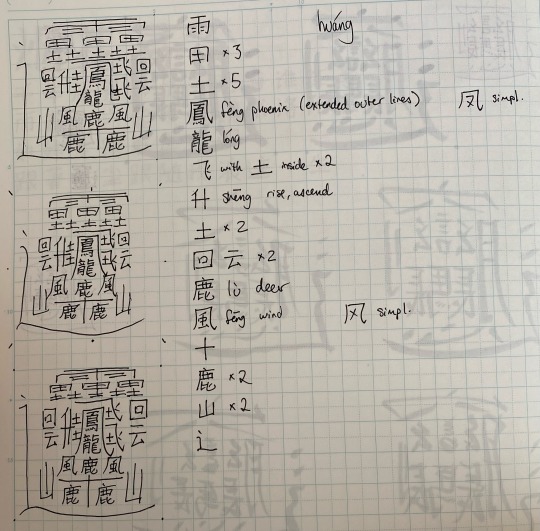
Super long character practice: biáng and huáng
The first is often considered the character with the most strokes and refers to a type of noodle (biangbiang mian).
The second has more strokes but isn’t really a word. It’s considered an artistic representation of heaven, in character form.
I feel like biáng was actually possible to get somewhat decent, but huáng was just incredibly difficult to get the spacing right 😂
40 notes
·
View notes
Text
Any suggestions on where and how to start self-studying mandarin? Please let me know!
This is something I’ve wanted to do for a while but I don’t know what resources to look for or where to start.
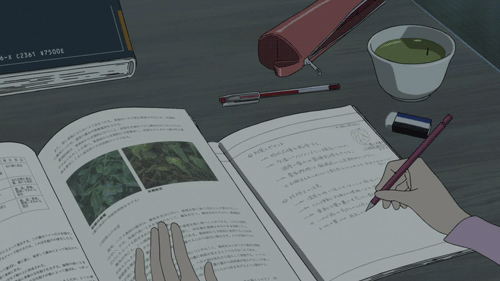
#studyblr#language learning#mandarin#self study#learning languages#learning chinese#mandarin studyblr
65 notes
·
View notes
Text

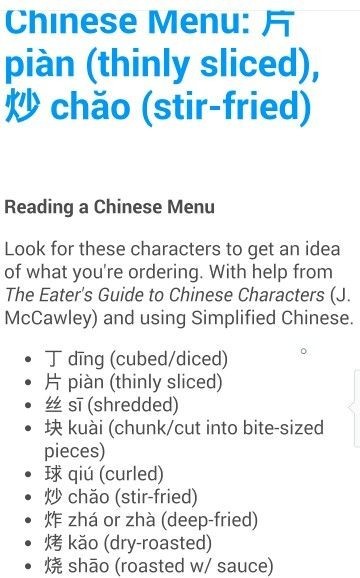
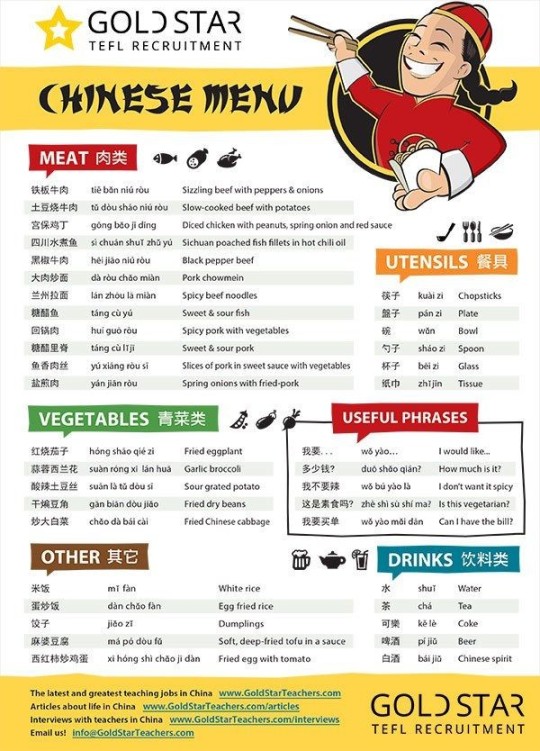
Mandarin Chinese restaurant vocabulary. I found much of the vocabulary these posts really useful for when I ordered food yesterday!
Sources of these pictures and other useful posts:
♤ ♡ ◇ ♧ ☆ ♤ ♡ ◇
#chinese langblr#langblr#mandarin langblr#mandarinblr#chinese vocab#mandarin vocab#learn chinese#study chinese#study mandarin#learn mandarin#mandarin#mandarin chinese#mandarin studyblr#mandarin vocabulary#learning mandarin#chinese#chinese language#chinese studyblr#chinese vocabulary#studying chinese#english to chinese#chinese learning#studying mandarin#langblog#language learning#languageblr#learning languages#study hard#studyblr
191 notes
·
View notes
Text



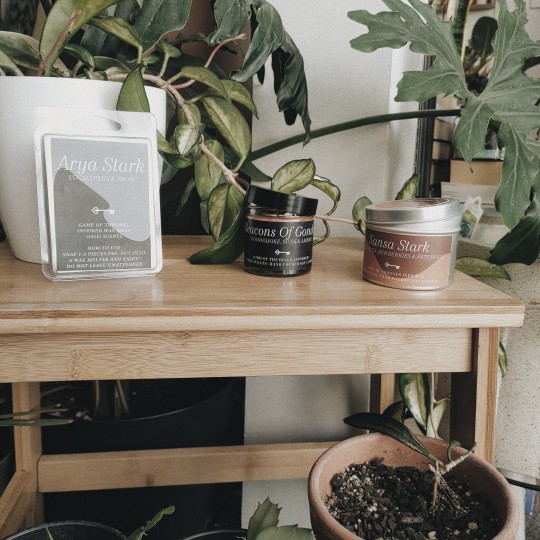
22年09月07日 | Wednesday
I am honestly exhausted to my bones tonight but it's been a good day. Audit readings done, Mandarin studied, Bubble tea consumed. Still waiting to hear back about a scholarship trip but it's all going to work out. Have a lovely day friends
-Sarah <3
CURRENTLY READING: Babel - R.F Kuang
CURRENTLY LISTENING: Circus - Stray Kids
Twitter | Insta
#studyblr#langblr#accounting student#study aesthetic#study blog#bookblr#studyspo#online diary#studyblr community#mandarin studyblr#korean studies#book blog#bookworm#academia aesthetic#100 days of productivity#weavingmythos#** mine !
253 notes
·
View notes